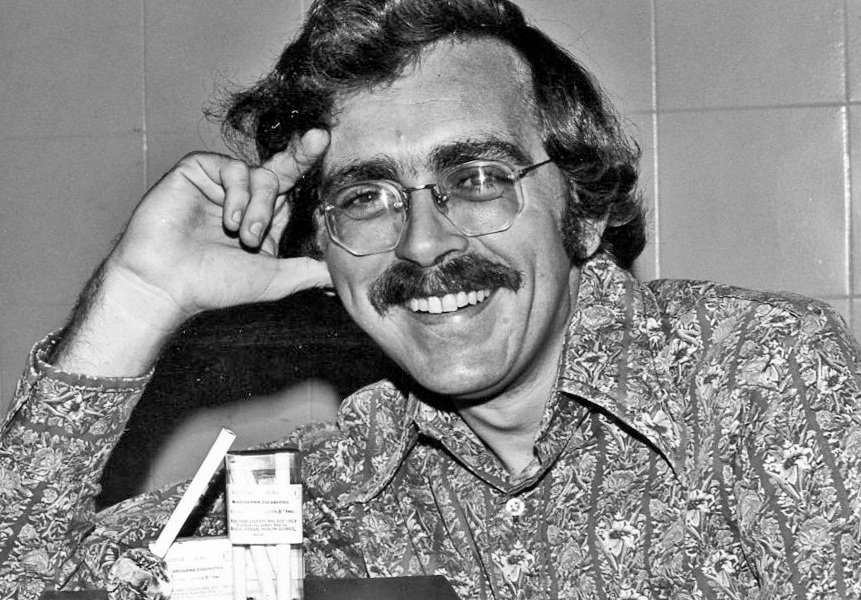Forty-five years!
November 24, 2021 marks the 45th anniversary of the landmark judicial decision in US v. Randall, the case that launched the medical marijuana movement in the U.S. If ever there was an appropriate topic for The Memory Blog it is that historic decision. To mark the occasion I am re-printing an excerpt from our 1998 autobiography, Marijuana Rx:The Patients’ Fight for Medicinal Pot (see below).
Robert Randall with his first supply of legal marijuana to treat his glaucoma. November 1976.
In 1976, just as it is in 2021, November 24th was the day before Thanksgiving Day. Our trial was in July of that year and we had been anxiously awaiting the decision. Given the scholarly and groundbreaking nature of the decision it was no wonder that Judge James A. Washington took his time. Robert’s defense—medical necessity—was based on the Common Law concept of necessity and it is not an easy defense to muster because of the strict criteria. Our attorney, the late John Karr of Washington, DC, did a masterful job of presenting the case and convincing the Judge, who just happened to be the former Dean of the Howard University Law School. We were told the Judge would release the decision upon his return from vacation in late October. Instead we received a call that the Judge, a diabetic, had been admitted to the hospital and was having “some issues”. After being released from the hospital Judge Washington encountered even more trouble when he fell down a flight of stairs and broke his neck.
For a couple weeks we didn’t know what would happen. If the Judge died or was permanently disabled it was possible we would have to conduct the trial all over again. It was a stressful time. But on the morning of November 24, 1976, our lawyers called with the good news, the decision was signed and a messenger had been sent to collect it. They wanted us to come to their office ASAP but Robert had an appointment with Dr. Merritt, the ophthalmologist who would treat Robert with federal marijuana for the next 15 months. On that morning Dr. Merritt planned to conduct some studies with the recently received supplies of marijuana. Robert did not want to postpone that appointment, especially since we were headed into the Thanksgiving Day weekend. By early afternoon Merritt completed his tests and Robert headed downtown to John Karr’s office.
Excerpt from Marijuana Rx, Chapter 11, “Giving Thanks”:
By the time I arrived at Karr & Graves I was, most definitely, stoned. Passing the receptionist with a wave, I rounded the comer and peeked into Paul’s office. The lawyer was on the phone but handed the decision across the desk. Covering the mouthpiece he said, “Last page.” Familiar with the office layout, I slipped away to the conference room.
I appreciated Paul’s shortcut. The decision was hefty, twenty pages of legal opinion. I flipped to the last page and read the final paragraph:
Upon the basis of the foregoing discussion, the Court finds that defendant, Robert C. Randall, has established the defense of necessity. Accordingly, it is the finding of this Court that he is not guilty of a violation of D.C. Code 33-402, and that the charges against him must be hereby DISMISSED.
Breathing a sigh of relief, I pulled out a chair from the table and sat down. Quietly I began leafing through the pages, skimming the section on “Facts” and moving quickly to “Opinion.” My eyes darted through the paragraphs snatching bits and pieces.
Penalizing one who acted rationally to avoid a greater harm will serve neither to rehabilitate the offender nor deter others from acting similarly when presented with similar circumstances.
